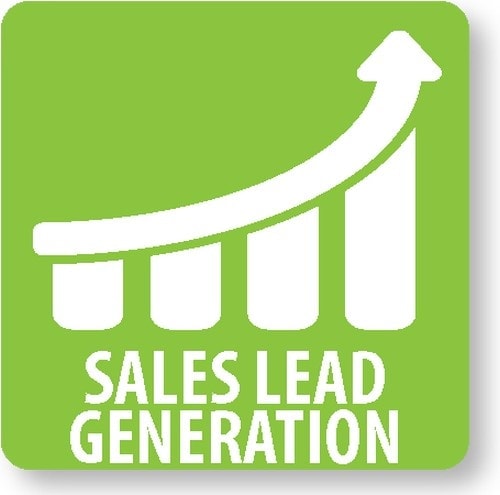In business sales lead is a person individual or an organization which has shown interest in the product or services of a company. There are various methods to generate a lead. A lead can be generated through the referral of existing customers who have been using your products for a long time or who have a positive opinion about your business or as a result of advertising or publicity. lead generation is usually a typical responsibility for a company’s Marketing department.
Therefore, every company spends a lot of money on their marketing departments. However, the job of pursuing and convincing a lead is usually a responsibility of the sales department of a company.
For example, an Ophthalmic company promotes its products and services at the trade show. In the hope to attract qualified buyers who attend the exhibit. Whenever an individual enquires about the products of the company he or she is considered as a potential lead and subsequently converted into a sale.
Different type of information is collected about sales lead such as person’s name, contact number, email address or other information like person’s role in the company or anticipated purchasing time of the sales lead for a particular product. A company’s success largely depends on its lead generation efforts and its methods to deal with the potential sales leads.
Table of Contents
Sales Lead generation sources
Lead generation is the poster in the process of acquiring sales leads. it includes various activities such as marketing related activities or lead generators. The simplest method for lead generation is obtaining referral of potential customers from the existing customers of a company. However, there are other effective methods to too quickly boost the revenue of a company. For example, a company can buy the lists of Sales leads from a lead generation company which maintains a database of consumer leads and business leads.
The contacts obtained from lead generation company can be used for direct marketing such as telemarketing campaigns, email marketing, etc. In addition to this companies also participate host various business to business events to generate sales for example events like trade shows, lunch and learn meetings, and webinars etc. Individual there are other advanced numbers of additional lead generation tools which can also be used by companies to generate leads. With the help of digital marketing approaches a company tries to attract IT sales leads with the help of company generated online content such as videos blog post infographics and white papers.
Digital marketing operates approaches are also referred to as inbound marketing. Companies usually adopt a content marketing strategy to advertise their products and services. Digital marketing approaches make the use of mobiles Anant online social media platforms like LinkedIn, Facebook, and Twitter.
Types of Sales leads
Sales leads can be divided into various categories on the basis of their responses.
1) Suspects
A suspect is an individual who has shown interest in the products or services of a company in one way or another way. For example, by visiting the official website of a company to get general information. It is a responsibility of lead nurturing to convert a suspect into a sales lead or customer. Lead nurture will maintain communication with the suspect and provide information to it as required in order to help them to make the purchase decision
2) Cold warm and hot leads
Sales leads are classified by a marketer or sales representatives as cold, warm, and hot leads on the basis of prospective customer’s readiness or interest in the product or services of a company. For example, if a customer has inquired about the price and time frame for delivery or for the service implementation, can be classified as a hot lead. Opposite to this, a warm sales lead might show interest for the need of the product but don’t show give any indication to buy product or services immediately by not asking about the budget or time frame. BANT system, which stands for Budget, Authority, Need, and Frame time to differentiate between cold, warm and hot sales leads.
3) Market Qualified Leads (MQL)
This is a type of sales leads who have shown interest in the product or service but is not ready to buy the product in a short period of time. To convert MQL leads into customers, marketers are required to provide additional information about product or services.
4) Sales Qualified Leads (SQL)
This type of sales leads has shown immediate interest in purchasing the product and service and have become a sales-ready prospect. Sales Qualified Leads (SQL) are distributed by a marketer to the sales representative to convert them into customers and keep a healthy relationship with them for future sales.
However, the process of sales leads management, nurturing, and scoring can be automated using CRM which stands for Customer Relationship Management and Marketing Automation Systems.
Advantages of Sales lead generation
1) Better sales and profit ratio
The most important benefit of using lead generation is the increase in sales of products and services of a company. More than 50% of marketer spend half of their marketing budget for a lead generation. It has been observed that companies which use lead generation programs have more chances of turning sales leads into loyal customers. Therefore, profits margins of the business increase. Lead generation helps to stay in the market.
2) Generate Awareness
Lead generation can be helpful to make people aware about products and services of your company by “word of mouth”, because the number of people aware of your brand and the more brand value of your brand will become and this will make your customers think about you first whenever they are in need of a particular product or service.
3) Target desired customers
With the help of lead generation, you can target your desired customers irrespective of their demographic locations. Hence, it will become easy for you to focus on your target audience. Consequently, you can make sales.
4) Better return on Investment (ROI)
Lead generation has a far better return on investment than any other marketing technique. This is the only marketing technique where you pay for leads received. Therefore, your CPL reduces.
5) Gather important information about prospects
With the help of lead generation, you can collect detailed and important information about your leads such as their contact details, his preferences, his needs etc. Therefore, you have more chances to make a successful sale by modifying your products and services as per their needs before contacting the sales prospect.
6) Beneficial for both seller as well as buyer
A seller can pitch their product as per the needs of a customer and a buyer can do detailed research on different sellers. Therefore, it becomes a win-win situation for both.
7) Less costly than other advertising methods
Advertising is important to make people aware of your company’s products and services. Therefore, the company has to opt for one or other advertising technique. Lead generation is the most cost-effective and it produces maximum positive results. Therefore, investing in lead generation technique will never go waste.
Disadvantages of Sales lead generation
1) The high cost of a lead generation company
A company has to spend a huge amount of money to lead generation companies and the leads generated using this technique will have high price tags, which will cause you problems if you have a low budget in the initial days.
2) Risks associated with leads
You have to pay a huge amount of money to buy a lead and in case your lead doesn’t convert into customers will cause of loss. Therefore, you will always have a risk of loss while paying for a lead to a lead generation company.
Sales Lead Management
Once you have conducted these lead generation activities mentioned above, there could be a generation of many qualified leads for the business. To maximize the potential of these leads, an organization is expected to develop a lead management process which is also called lead to the revenue management process. This process has methods and systems to capture, track and distribute leads to respective sales representatives so that they can close the leads and sell the product.
Sales lead management involves the cultivation of specific leads which are helped to generate sales business for the company. The marketing department is expected to be responsible for Lead scoring, which is nothing but evaluating and ranking the leads according to the potential of the buyer in the sales funnel. The sales funnel, also known as sales cycle or buyers’ journey, begins with interest from the buyer, awareness of the product and finally ends in a sale.
Managing a lead and taking the prospect through the right step of the process is very important for lead conversion. Every step of sales funnels, right from lead generation till sales closure requires different methods of approach to the customer so that the passage of customers through the sales funnel is smooth.
Internet Marketing role in Sales Leads
We live in a world where people tend to search the internet for every single thing that they need to find. From making the buying decisions to finding out information about a particular product or service, people all over the world are using the services of the internet.
So, there is unlimited access to the power of the internet for the people out there. But that is not the only thing that is good here. With the help of the internet, companies and businesses have a whole new chance to get their sales leads.
However, in order to achieve the sale leads numbers, the company needs to have the best skills and strategies that they can use for the best of the results.
The businesses can easily use the internet services in order to make sure that they get the leads that they want and these services are a great help to them because they need to inform the people about their products and services in the first place.
Also, the internet can be a great place to find out all the information regarding the unmet expectations and demands of the consumers and then offer their solutions, which would solve these problems for sure.
In case you are missing the point in here, let us provide you with an example to make you understand better.
Well, in order to meet all the technology-related demands of the people, the companies can provide e-books, conduct webinars, and other important things to enlighten their customers about using proper software or a product.
Also, there is a scope for the business professionals to hold some of the most interactive online lessons and sessions which would further provide the knowledge to the customers out there.
Not just that but they can also have Q&As in order to answer all the questions that customers might have about any particular product or services.
Liked this post? Check out the complete series on Sales




